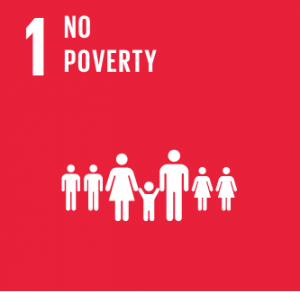
A fighting chance: 70 years of combatting poverty
The fight against poverty has been central to the work of the UN since its foundation: the preamble of the UN charter reads one of the purposes for the establishment of the Organization being: “to promote social progress and better standards of life in larger freedom.”
Poverty, as defined by the UN, encompasses more than just a lack of monetary resources. Hunger and malnutrition, limited access to education and other basic services, social discrimination and exclusion as well as the lack of participation in decision-making are also recognized as indicators of relative poverty.
At the United Nations Conference on Environment and Development in Rio de Janeiro, in 1992, governments declared that “all States and all people shall cooperate in the essential task of eradicating poverty as an indispensable requirement for sustainable development, in order to decrease the disparities in standards of living and better meet the needs of the majority of the people of the world”.
 The Rio Declaration laid the foundation for an even more targeted development framework, leading to the establishment of the first official decade on poverty in 1997, and eventually the implementation of the Millennium Development Goals (MDGs) in 2000.
The Rio Declaration laid the foundation for an even more targeted development framework, leading to the establishment of the first official decade on poverty in 1997, and eventually the implementation of the Millennium Development Goals (MDGs) in 2000.
The MDGs have become known as the most successful anti-poverty push in history. And with good reason: over the past 15 years, the goal of reducing poverty by half has not only been achieved, but even surpassed.
The number of people now living in extreme poverty has fallen from 1.9 billion in 1990 to 836 million in 2015, while the working middle class (those living on more than 4$ a day) nearly tripled.
With the best practices that yielded these breakthrough results fresh in mind, world leaders set an even more ambitious goal this year, with the launch of the SDG’s. The development framework that was adopted in September aims to completely eradicate extreme poverty by 2030.
While poverty and inequality have existed in every country on earth since the beginning of time, the success of the MDGs has shown the international community that with the right tools, global cooperation and a great dose of dedication, breakthrough results are within reach. Today, however, 14 percent of the world’s population still lives in extreme poverty.
A number that has been deemed unacceptable by the UN and its Member States, and – with their combined efforts and the dedication of all stakeholders involved – will soon belong to the past.

Follow Us